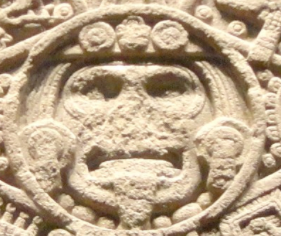If you could, please format it
WORD, DEFINITION
I want to add them to a flashcard deck for myself, I casually collect loanwords and have been getting turned on to trying out csv/flashcards lately haha
Feel free to do the same, if the format is followed you can just copy and paste it to a new line of the csv deck
UBUNTU, from Zulu.
Ubuntu is a concept in Bantu philosophy which is commonly translated as humanity or humaneness, but those are rough and don’t capture the nuance.
In a bunch of SciFi stories, a robot or alien joins a group of humans. The humans are initially wary of the alien/robot, but they spend time together, bond, and realize that they’re not really that different after all. A human says that, while their new friend might not be Homo sapiens, they’re definitely human.
Ubuntu captures that whole concept in one word. It refers to the subtle, ineffable qualities which “make us human”, as exemplified by our social bonds and how we interact with each other.
Doch, from German and its main use is expresseing a positive statement in opposition to a prior negative one. For pronunciation, use Wiktionary.
So if you say: “you can’t win the game by cheating” and I say “Doch!” I express “yes I can!”. But neatly in one single word with one syllable, which is why it’s often used by children as single counter to something their parents say.
I wonder about this sometimes because you can append “huh” to an English affirmative to make it into that meaning, as in “yes-huh”. The questions I’ve been asking myself is whether such a phrase is one word or two. Is it the same word as “yes”? But even still, it’s not allowed to be used by anyone wishing to appear mature or professional, so it doesn’t exist in every lect of English, which I suppose makes it less of an “English” word as such.
Swedish has the word “jo” which means the same as “doch” here, but it’s different in that it doesn’t also mean “but”. I feel like it’s most often followed up by a clarification of the supposed truth rather than left as a single word. Picturing it by itself has me feeling frustrated like the speaker is only answering as shortly as possible and otherwise ignoring me.
In Norwegian, “ja” (pronounced ya) means “yes” for positive questions, while “jo” (pronounced yoo) means “yes” in response to a negative question (contradicting a negative statement).
A fun thing about it is that it’s often pronounced on the inhale rather than the exhale.
Zeitgeist
Rendezvous
Iceberg
Portuguese:
Cafuné: the act of caressing someone’s hair.
Xodó: a name for one’s favorite someone (like a teacher’s favorite student, a grandma’s favorite grandson…)
Xará: someone who shares the same name as you.
Arschubervollmitseifgefuhl, The feeling that you have too many bars of soap up your bum
What does that actually mean, to have too many bars up soap up your ass? Like they’re overly neat freaks?
No, just literally there’s only really room up there for like 5 or 6, then you always get that unmistakable feeling… Don’t worry, you’ll definitely recognise it when you get there, so you can safely just keep going until then.
Kenjataimu is the japanese word for post-nut clarity.
Fyi, that’s literally “wise person time” - “taimu” being the English word “time”, so you’d be re-importing that one.
schadenfreude/skadeglad, Pleasure from another’s downfall
Schadenfreude is counted as an english word as well now, if that matters.
Skadeglad, if they want something easier to pronounce for an English speaker. But tbh I don’t know if these kinds of compound words should count at all.
There’s a few “words” in this thread that I feel are stretching the concept. “Köksbord” is written as one word, but it literally means “kitchen’s table”. A “bookshelf” and a “book shelf” are not different things.
I feel like “skadeglad” is a bit more in the spirit of things though because the combination of the words implies a more complex idea. It could be misinterpreted as meaning sadistic by just a literal reading. More like “every day” vs “everyday.”
I thought stamtisch was kitchen table
Considering thst schadenfreude is a commonish word in English now… I just assumed it was the inspiration for this
I’ve never been Muslim or spoken Arabic, but I’ve adopted inshallah. It means hopefully or with any luck
The English equivalent would be “God willing” and in Dutch, a lovely archaic phrase: “Zo de Heere wil en wij leven”
What’s the literal translation there?
Turns out it’s from an old translation of James 4:15, here formulated as: “[If] so the Lord wills and we live”
It means “if Allah wills it”, so similar to “God willing”.
I cant ever get Michael Scott desecrating that word to mean if his foot ever recovers from its George Foreman Grill degree burns out of my mind whenever I hear godwilling used





